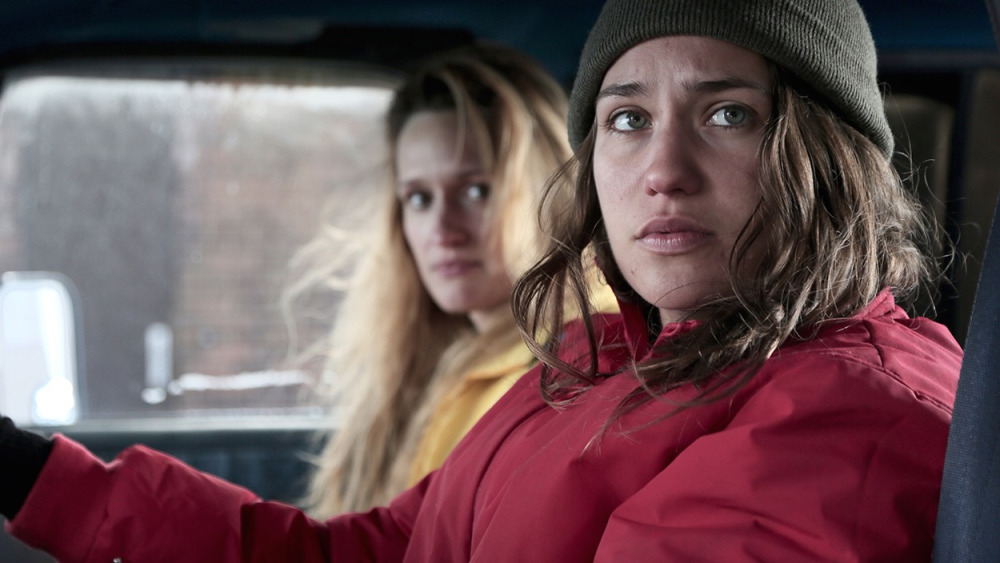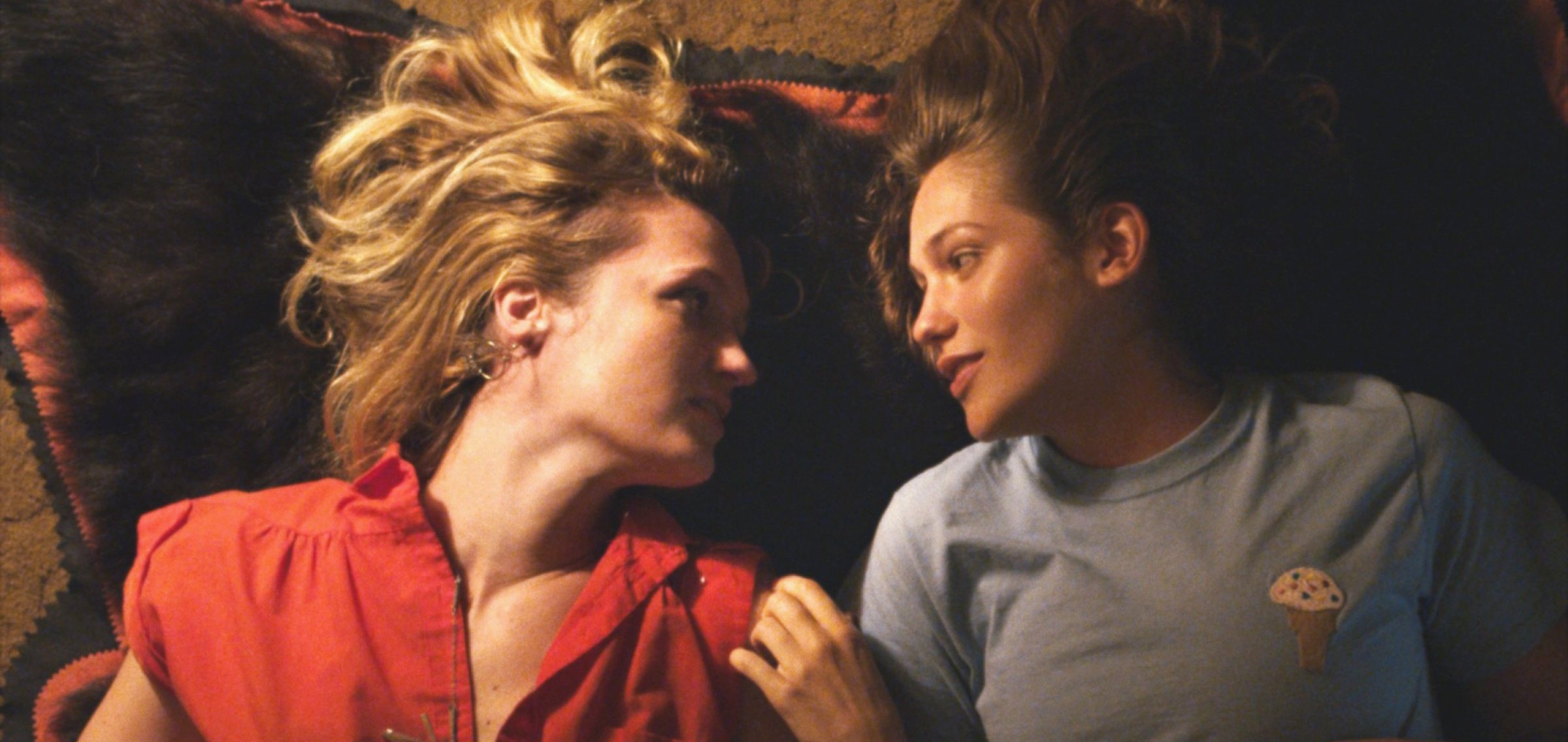I think AWOL might have more value and interest for people living outside the United States. Because AWOL comes across as a heavily stereotyped, borderline parody of America. Except it’s not funny. This is despite the fact that I’m pretty certain the writer/director is American. This depiction of America would be fascinating if this movie weren’t so mediocre.
The lead character in AWOL is Joey, a young lesbian who feels stuck in her dead-end town. The best chance for her to make something of herself is to join the military which her mother is pushing her into doing. Before she decides to join the military though, she meets Rayna. Rayna has two kids and a shitty husband. She is also considered bad news by Joey’s friends and family. But Joey disregards these opinions. Joey and Rayna begin a serious affair. This affair leads Joey to wanting more from life. She eventually decides to join the military to have a chance to support Rayna and her children. However, Rayna struggles with the idea of leaving her husband for a woman.

AWOL has an image of small town America and it is not subtle in portraying this. One of the opening scenes in this movie is a series of shots depicting fat people, American flags and purchasable items with controversial political opinions. The first problem with this is that AWOL does not feel like it was made by someone with a lot of first-hand experience in this setting. There is such judgment and unexplored stereotypes that it makes me think director Deb Shoval hasn’t spent a lot of time in small, American towns. There’s no depth to this portrayal. Instead, it comes across as a film made by someone who is critical of and has a fascination for small, American towns but lacks any actual insight into what life is actually like in said places.
A related problem is that the characters are too informed by their location. A large part of why I never connected with these characters is because they never felt like real people. They’re archetypes informed by where they live. Other than the small town stereotypes, we see stereotypes of two other groups of people. The first are some large city, liberal types who go to college. This group of characters are all smug, pseudo-intellectuals who have maybe read a lot of theory but disregard Joey’s actual lived experiences. Later in the film, Rayna and Joey encounter a queer community in Vermont. These characters have unusual living situations, play guitar, smoke weed and act like a stereotype of liberal queer communities outside of colleges. None of these characters get traits that don’t fall into this narrow stereotype of character they are portraying.

A major theme of AWOL seems to be about how much where you live informs who you are as a person. If that’s the case, then there’s no reason to feel attached to Joey or Rayna. They are more or less interchangeable for people who live in similar locations. I guess Rayna and Joey are supposed to be different in that they engage in a homosexual affair. But I’ve said it before and I’ll say it again, having incredibly standard characters and story except this time it’s queer isn’t enough for me.
Maybe AWOL’s queerness is unique enough for people who don’t watch many WLW films but at the end of the day, this movie is still mediocre and the characters lacked depth. While AWOL is technically competent and well-shot, these flat characters stopped me from being able to give this film a positive review. I kept wondering, what was the point in telling this story? In focusing on these characters? I never got answers to those questions. AWOL has an unsatisfactory ending to an average story. At no point did the film rise about being exceedingly average.
Overall rating: 5.1/10
Other WLW films in similar genres
WLW in the military
So mediocre it’s average


Be First to Comment